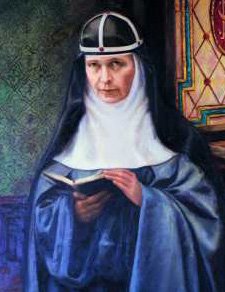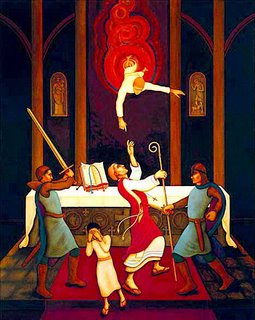
James Alberione may not be universally well known, yet many of us read great books on the Faith which we have purchased from the Pauline bookshops. Father James had such a great love for our Catholic Faith that he wished to share it with as many people as possible, but first let us start from the beginning.
James Alberione was born into a family of poor farmers in the year 1884 in Italy, his parents, Michael and Teresa were deeply devout and raised their children to also live their Faith. With little James though this was not such a hard thing to instill for James from an early age longed to become a Priest and said so when questioned!
Though little James came from hardy peasant stock this did not stop him from going to school as both his parents placed great emphasis on learning and gaining a good education. Both Michael and Teresa taught their children a love of knowledge with an equal amount of love for God, for to gain knowledge without putting it to good use would be inexcusable!
The Alberione family eventually moved to Cherasco, parish of San Martino in the diocese of Alba, where James came to the notice of Father Montersino, who encouraged James to follow his calling from God. And under the gentle guidance of this Priest, James truly shone as he learnt the fundamentals and also the deeper theology of the Catholic Faith. And at the young age of only 16 years, James entered the Seminary, where he met another Priest, Canon Francesco Chiesa, who became to him not only a mentor but a friend, guide and instructor to the intricacies of the Catholic Church.
But it was a night spent in prayer before the Blessed Sacrament that would lead James to become more than an ordinary Priest as he felt God call to him to pursue an avenue of evangelisation to the young people of the new Century! Upon completing his studies James Alberione was Ordained a Priest in 1907, he spent a brief spell in Narzole as an assistant Pastor but it was here that he also began to reflect on women’s role within the Church structure, this thought would stay with him for many years.
During these years of guiding young seminarians as their spiritual director and also of teaching Catechesis to the young people, it began to dawn on Fr. James that a new Era called for a better way of communicating the Faith to all people around the world. It was at this time also that he authored two books one in particular touched his heart and dealt with women and how their gifts could benefit the Church.
And it was during this time that Father James felt called to orchestrate a new Order to be undertaken by Consecrated souls in order to spread the Gospel to the four corners of the earth, a noble thought indeed! This Order would at first be termed the Pious Society of St. Paul, which would be better known as the 'Pauline Family' of Brothers and Sisters, when Father James began and incorporated the 'Daughters of St Paul', with the help of a young woman Teresa Merlo who had also embraced his ideal of spreading the Gospel message.
For both Father James and Teresa realised that they were living in an era where the technology of communication was ever growing and expanding into new formats, they both wished to seize the day for Gods Glory. But this dream nearly faltered when Father James Alberione became seriously ill and little hope was held for a recovery. But upon recovering he credited his healing to St. Paul, for he while he was sick he had seen in a dream these words, "Do not be afraid. I am with you. From here I want to enlighten. Be sorry for sin." Father James took this as his living Motto and for his Order of the Pauline Family.
This also led him to enlarge his family to include the prayerful apostolate of 'the Pious Disciples of the Divine Master', which was a group of Sisters who would dedicate their lives to prayer and Eucharistic Adoration. He chose Sr. Scholastica Rivata to join him in this prayerful addition to the Pauline family, for both of these holy souls realised that prayer was essential for the lifeblood of their Order.
During this time Father James and his merry band of Pauline Brothers and Sisters began many enterprises, they started a serious of periodicals which explained the Faith and also printed editions of the Holy Bible which they sent to all parts of the world. A small magazine was also begun for Parish Priests called 'The Pastoral Life' to encourage Priests in their Vocation and Pastoral duties. Once again in 1931 he instituted another magazine called 'Christian Home' for families to read and learn at home, and to inculcate a love of the Faith within the family unit.
This was just the beginning of Father James Alberiones dream of reaching people even in the most inhospitable conditions and to reach out to those in countries who were impoverished and needed the guiding light of the Church to give them hope in a harsh landscape.
This great man of vision seemed to have no hindrances placed before him as he continued his mission to reach into as many families as possible via the media even unto continuing through the war years, which allowed him some time to reflect on the way ahead for his Pauline Family. His dedication to the cause of spreading the Good News both near and far, never wavered as he began new Orders and kept a pastoral albeit loving eye on his already growing Pauline Family of Media and Publishing endeavours.
No one could have envisioned this young boy who had exclaimed to his teacher when asked ' I will be a Priest', would come to influence so many people in vastly different lands of all walk and all colours as he spread the Gospel message of Jesus Christ and the love of our Catholic Church and its Teachings.
There are now thousands of Pauline bookshops around the globe, helping to instruct the Faithful and those wishing to learn the Faith. All of which came from his vision and passion that has blazed a trail for future enterprises as many look at the life of this remarkable Saint and learn to emulate his philosophy of perseverance and giving all Glory to God.
Father James Alberione died in 1971.
Blessed James Alberione was beatified in 2003 by Pope John Paul II.
Peace of Christ to ALL
Copyright © 2006 Marie Smith. All rights reserved.




